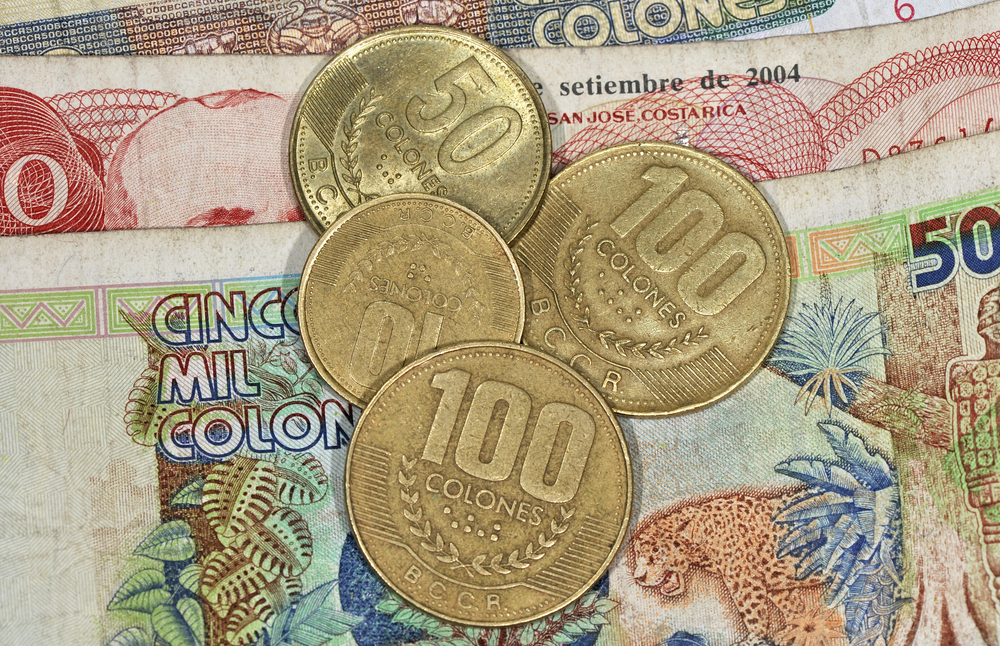Exchanging Money, Currency and Tipping in Costa Rica

Tourists visiting any place tend to have many questions that are related to money. The same applies to tourists visiting or planning to visit Costa Rica. Having the correct information with regards to money issues in a new place, is very important as it will guide how you will be spending your money. The below tips will prove to be very helpful if you plan on visiting Costa Rica.
The Currency and the Exchange Rate
The currency used in Costa Rica is known as the colon (₡). Available in both coin and paper form. The paper money starts from ₡1,000 (locally known as “mil” or “un rojo”) to ₡50,000. The coins on the other hand start from ₡5 to ₡500 (known locally as “quinientos”). The exchange rate of the colon changes daily. You can easily check the rates online or at the local banks.
Exchanging Money
US dollars are accepted in the whole country and are used as frequently as the local currency. However, it’s always best to have some local currency, since the bigger bills (higher than $20) won’t be accepted. You can use your debit card to get the local currency from the ATM (if your card can be used internationally). At the bank you can also make over the counter withdrawal, but the transaction fees will be higher. For larger transactions in large businesses you can use the US dollars, but for smaller transactions like cabs you should use the local currency. The best option would be to have your money exchanged into the colones when you land in Costa Rica. The local banks will be the best place. Have your passport with you and be ready to wait, since the banks always have long lines. At the airport you will experience terrible exchange rates that will not favor you. You can always check with your bank on the international transaction fees.
Using your credit cards
The good thing about Costa Rica is that credit cards are accepted as a form of payment by many business providers. It is convenient since you don’t get to carry a lot of cash around and you will be given the correct conversion rates. Visa cards and MasterCard are widely accepted. The local phrase for credit cards is “¿Aceptan tarjetas de credito?” When you are still in your home country, make sure your local bank authorizes you to carry international transactions on your card. You can get credit cards for travelling that do not have fees for any international purchases.
Traveler’s Checks
This will not be useful since very few people do accept them as a form of payment in in Costa Rica.
Tipping
Compared to other countries, tipping is not that common in Costa Rica. Most of the people you will meet rarely tip. The below scenarios are ideal for tipping:
Restaurants
Most of the times, a 10% gratuity will be included in your bill. When it’s separate it will be referred to as servicio (service) and clearly indicated on the right-side of the bill. Since the locals don’t leave tips, the servers will not expect any tip from you. If you enjoyed the service don’t shy away from giving a generous tip, because some patrons complain about slow service.
Taxis
In the San Jose part of the country the cab fares are normally regulated, however in other parts of the country you have the freedom of negotiating the cab fares. If the fares are inflated no need to give a tip. If the cab has a meter, then you can tip by paying just a little extra on the meter price.
Bag Handlers/Bell Boys/and/or HousekeepingIt’s customary to pay $1-2 for each bag, to the hotel bell boy and/or the shuttle van driver that helped you with your luggage. For those who carry out housekeeping, you can leave a tip of $1-2 each day.
Tour Guides
It’s important to tip your tour guide, since they are keeping you safe, making your trip both enjoyable and informative. It’s nice and courteous to leave them a tip, the standard range being 10% to 15%.
Additional Advice
If you are not fluent in Spanish, many merchants have calculators to show you the total price of whatever you are buying, in colones.
Always have emergency cash with you, just in case the place you go doesn’t accept the use of credit cards or you have lost your wallet.
During the holidays, the ATMs that are close to popular tourist spots tend to run out of cash and the lines at the local banks will be longer. So make sure you plan accordingly.
The above tips will help you a lot in handling money matters when you will be visiting Costa Rica. Click here to contact Ocean Ranch Park today and check out our blog for more advice on your next trip!

